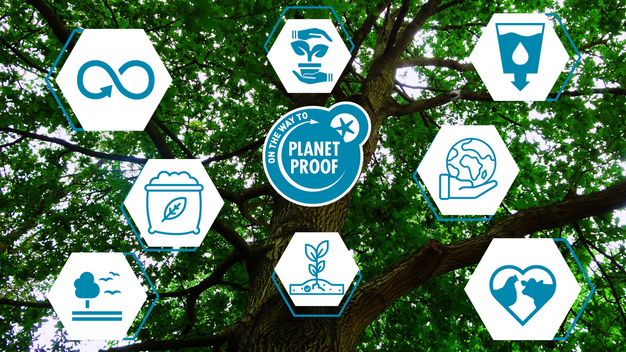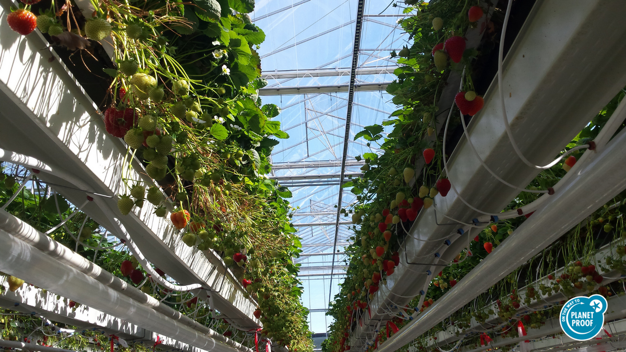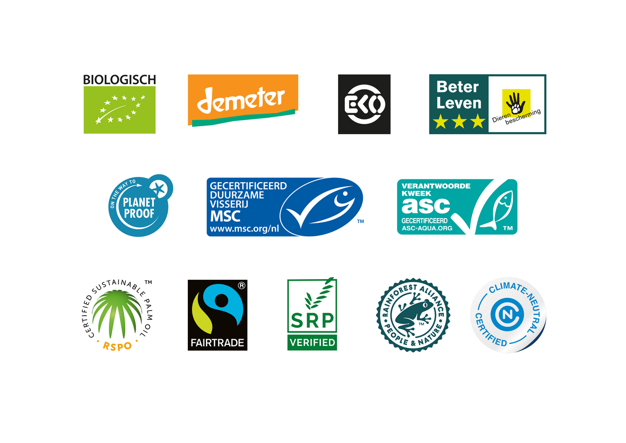The Netherlands' total food sales grew by 9.5% in 2023. Independent label sales, though, rose significantly more, by 22%. Those offer consumers sustainable options, but some quality labels, like On the Way to PlanetProof, are supermarket purchasing conditions and not always visible to consumers. That begs the question: is sustainability still a choice? And who pays for it?

The fruit and vegetable sector has made great strides. Research company Circana's Retail Quality Label Monitor shows that On the Way to PlanetProof fresh produce sale shares increased by more than the average 22%, especially thanks to potatoes and vegetables. Organic EU kept growing, too, particularly in fruit. These figures include all supermarkets except Aldi and Lidl. Those chains use On the Way to PlanetProof as a purchasing condition for Dutch fruit and vegetable products. Label sales shares are, thus, probably even higher than reported.
Those quality label growth figures indicate that consumer demand drives the food system's increased sustainability, says True Food Projects' chain manager, Maurits Steverink. The better the label is known, the more people will be willing to pay a higher price. A label must gain awareness and emotional value to build a loyal consumer base and justify the extra price. Currently, companies such as FrieslandCampina and HAK are trying to increase awareness of the On the Way to PlanetProof label, especially in the dairy sector.

The Dutch government is also paying attention to supermarkets' sustainability efforts. The Ministry of Agriculture, Nature, and Food Safety launched the Supermarkets Sustainability Dashboard, which aims to provide more transparency. It shows Organic EU, On the Way to PlanetProof, Fairtrade, and Rainforest Alliance shares, among others. It maps Albert Heijn, Aldi, Jumbo, Lidl, and Plus's 2022 efforts.
Supermarkets' sizable sales markets make them crucial to the sustainability transition. According to Steverink, retail brands are further ahead with sustainability than A-brands. Whereas A-brands often have their own sustainability standards, retail brands more often choose independent labels, which are transparent and recognized by consumers.
Transparency is vital, and supermarkets can be certificated in On the Way to PlanetProof Chain of Custody. Aldi, Dirk, Jumbo, and Lidl have this certification for fruit and vegetable products. Each must have a dedicated employee who ensures all requirements are met, and their head offices are audited twice a year. That guarantees that the entire chain of unpackaged products is PlanetProof certified, from cultivation to shelf.
Many Dutch supermarkets have PlanetProof as a purchasing condition for fresh produce. Chain of Custody certification, however, offers flexibility in whether to sell products packaged or not. That, though, does not guarantee all supermarket fruit and vegetables are labeled, which can make things unclear to shoppers.
There is also a discussion around grower compensation for their additional investment to meet quality label demands. Stichting Milieukeur developed a compensation scheme approved by the Authority Consumer and Market in early May. This fee offers clarity and contributes to a better earning model for sustainable farmers without noticeably increasing consumer prices.

Fairtrade and PlanetProof are two labels that utilize premiums for the primary sector. Fairtrade pays the cooperative or premium committee a fixed premium and offers minimum prices per product type.
Maurits urges the Dutch fruit and vegetable sector not to play the part of the victim in the sustainability transition, but to actively make choices to perform better together with retail. The sustainability trend is only getting stronger, offering an opportunity to be an active market participant as a chain player. Suppliers must strengthen their position and act like A-brands.
In conclusion: Sustainability seems to be becoming much less of a choice and more of a purchasing requirement. Supermarkets are crucial to this transition, and consumers are willing to pay more for products that are labeled sustainable. Transparency and fair grower compensation are a must to make the system fair and effective.
Photo's: On the Way to PlanetProof
For more information:
Maurits Steverink
True Food Projects
www.truefoodprojects.nl
On the Way to PlanetProof
www.planetproof.eu
